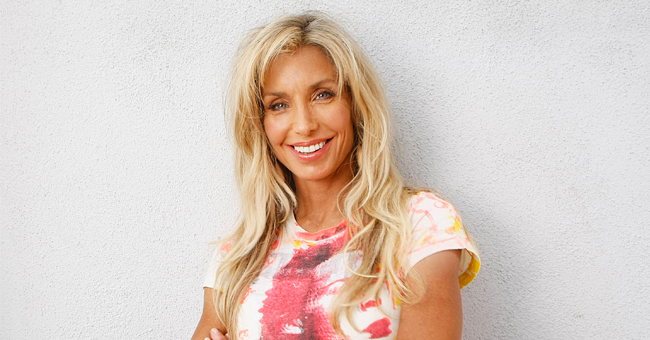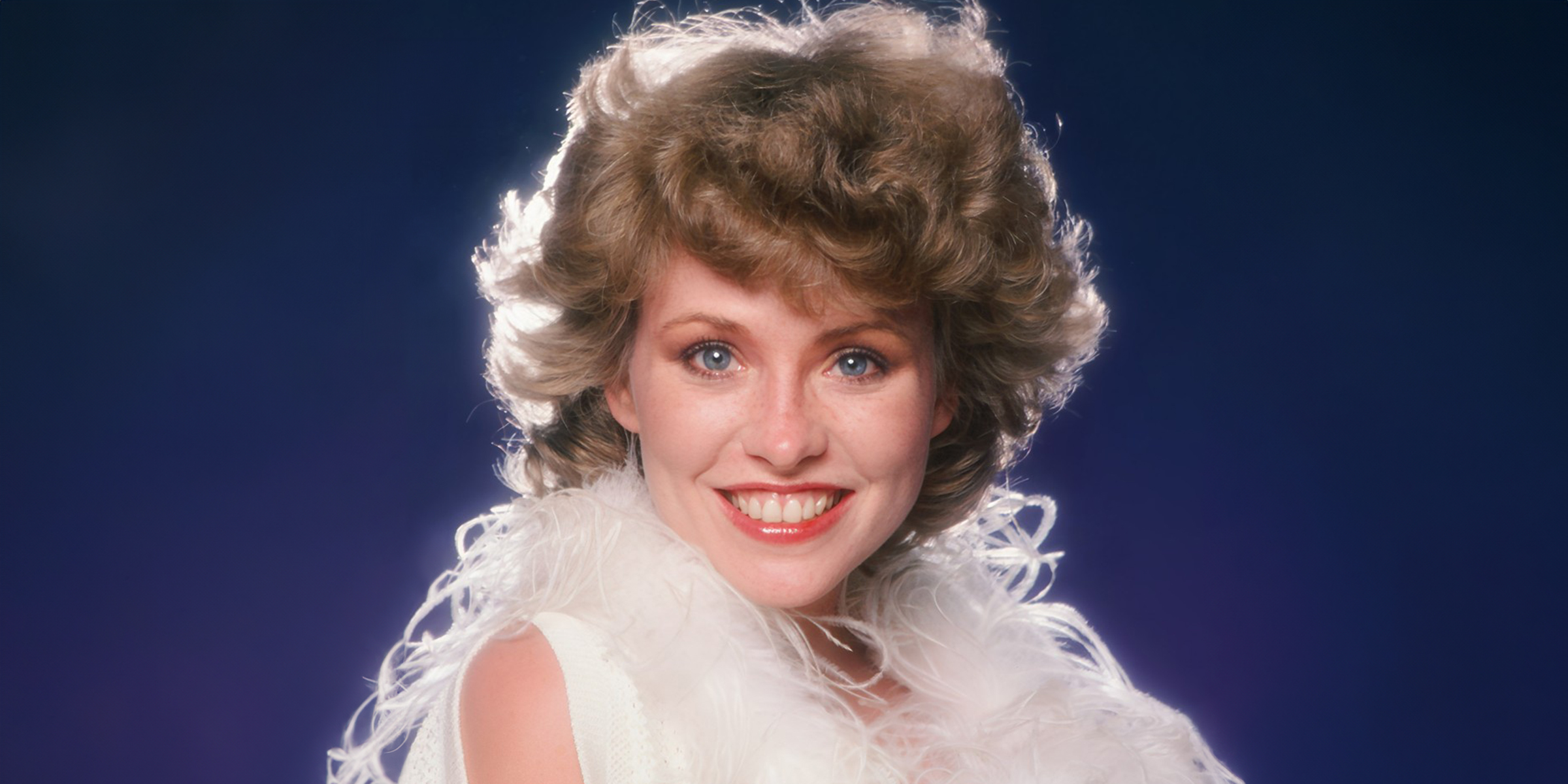In the 1980s, Heather Thomas was one of television’s most recognizable faces and a fixture on the pop-culture scene. Best known for her role on the hit series The Fall Guy, she captured the attention of audiences who admired her on-screen presence and all-American charm. Over time, however, her off-screen life took a challenging turn. From struggles with substance abuse to being overwhelmed by unwanted attention, Heather Thomas had to fight her way through personal obstacles that nearly derailed both her career and her health. Today, she is remembered not just for her television work, but also for her resilience and dedication to creating a fulfilling life beyond the spotlight.
Early Years and Entry into Show Business
Born in Connecticut, Heather Thomas displayed an interest in the entertainment industry from a very young age. She pursued acting, writing, and directing with genuine passion, and she always seemed destined for bigger things. Even as a teenager, she demonstrated a knack for on-camera work. By the time she turned fourteen, she was hosting a youth-oriented NBC television series called Talking with a Giant, where she and a few other teenagers interviewed notable public figures and celebrities.
That early introduction to television provided Thomas with valuable experience and confidence in front of the camera. Eager to refine her skills, she later enrolled at UCLA, studying film and theater to deepen her understanding of the craft. During her time there, she began landing roles in small television projects, a trajectory that would accelerate her path toward larger opportunities. One of her early acting jobs was in the short-lived comedy series Co-Ed Fever (1979), which may not have lasted long but gave her additional exposure in the competitive television landscape.

Breakthrough with The Fall Guy
In 1981, Heather Thomas secured what would become her most famous part: Jody Banks on The Fall Guy. Starring opposite Lee Majors, already a household name from The Six Million Dollar Man, Thomas played a stuntwoman-turned-bounty-hunter in this action-packed series. The premise followed stunt performers who spent their downtime tracking down fugitives, blending high-octane chases with fun and comedic banter.
The Fall Guy ran for five seasons and won over a broad audience. Thomas’s performance as Jody Banks showcased her agility and natural screen presence, and she became an instantly familiar face to viewers. Off-screen, however, she soon felt the pressures of success. While her popularity brought magazine interviews and television appearances, it also introduced challenges that were not always easy to handle.
Challenges and Personal Struggles
As the television series gained momentum, Thomas found herself dealing with issues in her personal life. She later explained how stress, combined with the rapid pace of working in Hollywood, led to health concerns and an unhealthy lifestyle. Various news outlets reported that she wrestled with substance use, and by her mid-20s, she had reached a critical point.
Even though she maintained a professional demeanor on set, people close to her noticed that her behavior behind the scenes became increasingly erratic. At one point, a severe episode caused her co-star, Lee Majors, and her manager to contact her mother, expressing grave concern for her well-being. Those fears prompted an intervention that set Heather Thomas on the path to treatment.

As she recounted later in interviews, she was invited—under false pretenses—to visit her father at a hospital, only to discover upon arrival that it was she who was in need of urgent care. Friends and family had gathered to encourage her to enter a detoxification program. Though the confrontation was stressful, Thomas admitted feeling a sense of relief once it became clear that help was at hand. She was facing serious physical risks, and medical professionals later revealed that had she continued down the same path, the outcome might have been dire.
Recovery and Turning Points
Thomas agreed to a multi-week stay in a hospital-based treatment center, determined to reclaim her health. She had pneumonia, inflamed kidneys, and other complications that required careful medical supervision. Yet, underneath the fear and discomfort, she felt a renewed hope. The intervention provided a much-needed pause, allowing her to reflect on her life and career trajectory.
During that period, she also wrestled with the idea of stepping back from the public eye. Although The Fall Guy had wrapped its final season, she remained in demand for other roles. However, she worried about maintaining sobriety amid the unpredictability of show business. She also spoke candidly about how being in the limelight brought unwanted attention, particularly from strangers who were crossing boundaries.
By her late 20s, Thomas had gone through a period of profound change: she had undergone detox, ended a short-lived marriage, and begun the slow and steady work of rebuilding her health. Committed to living without substances, she surrounded herself with a new social circle that supported her decision to remain sober.

Subsequent Career Efforts and New Directions
After The Fall Guy, Heather Thomas returned to the screen in smaller roles for both film and television. She appeared in movies like Cyclone (1987) and the Canadian production Red Blooded American Girl (1990). Though these projects offered modest success, Thomas gradually realized that the burdens of fame still weighed heavily on her.
She occasionally referenced dealing with worrisome admirers who overstepped legal and personal boundaries. Tired of living in constant anxiety, Thomas reached a point where she seriously considered leaving acting behind. As she later explained, her decision to focus on a more private life had much to do with her priorities: maintaining sobriety and finding a secure environment away from the challenges that had once threatened her well-being.
During the early 1990s, Thomas embarked on a new chapter in her personal life as well, marrying entertainment lawyer Skip Brittenham in 1992. She became a stepmother to his two daughters and, in June 2000, gave birth to her own daughter, India Rose. The responsibilities of motherhood—plus her determination to provide a stable home—reinforced her choice to keep a lower profile.
Venturing into Writing
Thomas found renewed creative satisfaction in writing. Although she had dreamed of branching into directing and producing, writing gave her a platform to express herself without the pressures of on-camera performance. She reportedly wrote scripts and a novel, pursuing projects that aligned with her interests behind the scenes.
In 2017, Heather Thomas made a brief return to film with a small role in Girltrash: All Night Long, a lighthearted indie project. This appearance marked one of the few times in recent years that she has stepped back in front of the camera. While she hasn’t maintained a traditional Hollywood acting schedule, she has kept her toe in the industry on her own terms, choosing roles or opportunities that feel right rather than out of obligation.

Advocacy and Activism
In addition to her writing and sporadic screen work, Thomas channeled her energy into advocacy. She became involved with various charitable endeavors, including service on the board of the Rape Foundation, and she supported environmental causes through organizations like the Amazon Conservation Team. Her experiences with personal adversity appear to have fueled her commitment to making a positive difference, and she has spoken about her gratitude for second chances and the desire to help others who may be in crisis.
Reflections on Fame and Identity
As she moved away from the constant glare of celebrity, Heather Thomas occasionally addressed the duality of being recognized for glamour while also identifying as a determined professional woman. Early in her career, she felt pressured to maintain a certain image, one that she acknowledged could be both flattering and burdensome. With time, she realized that her greatest fulfillment came from more authentic pursuits: nurturing relationships with family, channeling her creativity into writing, and supporting important causes.
Looking back, Thomas has said that the intense spotlight of the 1980s was a mixed blessing. While it gave her a platform and career opportunities, it also left her vulnerable when personal hardships emerged. Only after she confronted her health challenges and made a deliberate choice to step back did she find a sense of balance.
Legacy and Current Outlook
Heather Thomas’s story resonates with fans of 1980s television and with those who appreciate narratives of perseverance. She rose to stardom in a decade marked by big hair, action-packed series, and glossy magazine spreads, and she confronted trials that tested her resolve. By seeking help and embracing sobriety, she cleared a path for a more grounded personal life.
Although she never again reached the same level of mainstream visibility as during her The Fall Guy era, Thomas seems content with her journey. When she does step into the public sphere—whether to promote a project, discuss a cause, or grant an interview—it’s clear that she has found her own voice. In essence, she has become a testament to the fact that second acts and reinventions are indeed possible, and that a Hollywood career does not need to define one’s entire life.
Her legacy endures in the affectionate memories of fans who remember The Fall Guy and her other roles on screen, as well as in the admiration of those who have followed her story of survival and self-discovery. Heather Thomas stands as a reminder that the path to lasting contentment often involves reckoning with personal struggles, building a support network, and following one’s passions—no matter how unexpected that path might be.
What are your memories of Heather Thomas’s career, and do you recall tuning in to see her on The Fall Guy? Feel free to share your thoughts with fellow fans as we celebrate this charismatic star’s resilience and ongoing journey.
